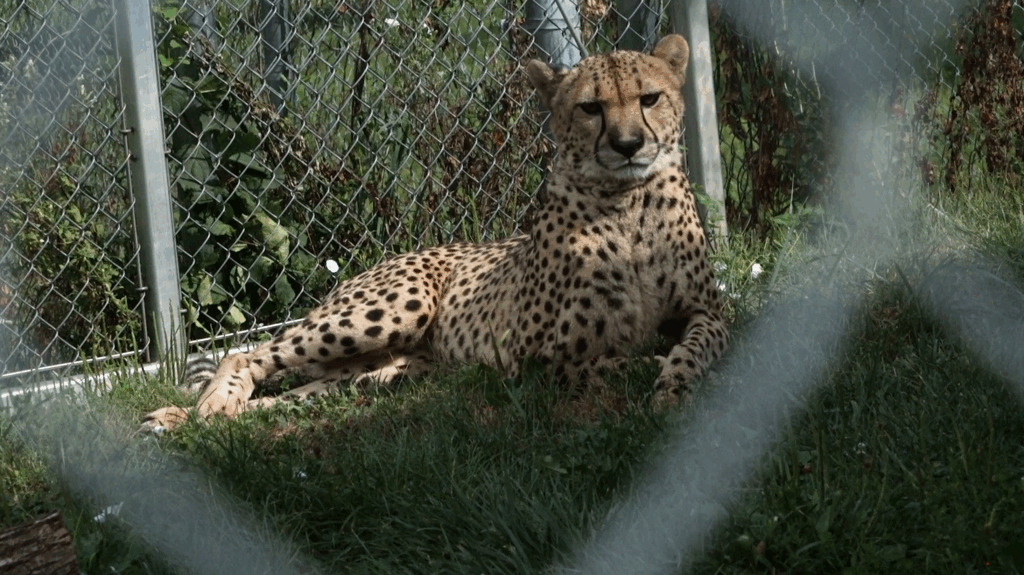Although the federal government was partially closed last month, a creature in its custody, apparently unaware of any restrictions, produced a litter of four little ones in a breeding milestone.
Seemingly unconcerned by any legalities, the heedless animal, a five-year old female cheetah named Amabala, gave birth to the cubs Oct. 17 and 18 at the conservation facility in Front Royal, Virginia, operated by the Smithsonian Institution’s National Zoo.
However, the news of what gossip columns used to describe as the blessed event, became public only Saturday, in an announcement made when the zoo reopened after the government shutdown.
In a sense, the delivery may have at least technically represented a sort of stealthy expansion of federal responsibilities.
However it did not appear beyond the capacities of the staff of the zoo. They remained on duty throughout the shutdown, according to the zoo, to care for their cheetahs and other charges.
In its online birth announcement, the zoo described the event as “positively purr-fect news.”
Amabala, the mother cheetah, is doing well, and is doing “a great job” in caring for her babies, the zoo said.
The cubs “appear to be strong, active, vocal and eating well,” according to the zoo.
While making a play in its announcement on the sound associated with satisfied cats, the zoo indicated that soft purring has been only one vocalization of the cheetah cubs.
Also heard, it appears are soft chirps and “gentle meows.”
In their natural habitat, which is mainly sub-Saharan Africa, cheetahs are said to be vulnerable creatures, and, according to a cheetah conservation group, possibly the most threatened of the continent’s large cats.
Fewer than 7,000 remain in the wild, the zoo said, making each birth vital for species survival.
The zoo’s staff members have become old hands at cheetah breeding, which has many obstacles and difficulties, the zoo said.
It noted that the recent event was the 20th birth of a cheetah litter at the conservation center since 2010, a conservation milestone.
Significantly, last month’s litter marked a special accomplishment for the breeding program.
Not only did it mark a first time delivery for Amabala, but it was also apparently the first delivery for a cheetah whose birth was itself shown on the zoo’s cheetah cub cam.
It meant that in accordance with one of the great cycles of nature and animal breeding, a cheetah that was once delivered at the conservation facility has grown up to deliver cubs of her own at the same place.
The name of the cubs’ male parent was Flash.
Flash is eight years old and had produced cubs before.
Cheetahs are known as the fastest land animal, so the name Flash may refer to the speed of the cheetah father.
In its connotation of brevity, however, Flash might be viewed as a reference to the extent of a father cheetah’s involvement in the production of cheetah cubs.
After the cubs are born, the zoo said, male cheetahs “do not play any role” in raising them.
The post Cheetah mom gave birth during shutdown, National Zoo reveals
appeared first on Washington Post.




